Deleted Interest Setup for Billing
Note that the following setup is for Billing Deleted Interest only. The Revenue Deleted Interest is setup differently.
Billing Deleted Interest is similar to Revenue Deleted Interest except that it is recorded at the property level instead of the owner level. What do I mean by that? In the above example, the DEL Interest was added to an A/R Account with owners attached (1200). In the case of Billing Deleted Interest, we will set up a new separate account number that will be subbed out by the property instead of the owner.
1.Setup this non-billable account as an asset account (balance sheet account) with the property Sub-Table attached. See the below example:
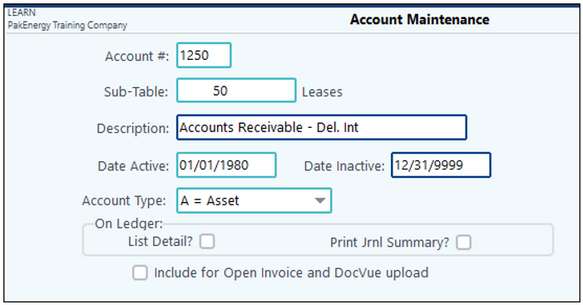
2.Make sure that the "Gross Up Billing Entries" option is set to "Yes" in the Accounts Payable > Master File Maintenance > Company A/P Options > A/P Entry tab.
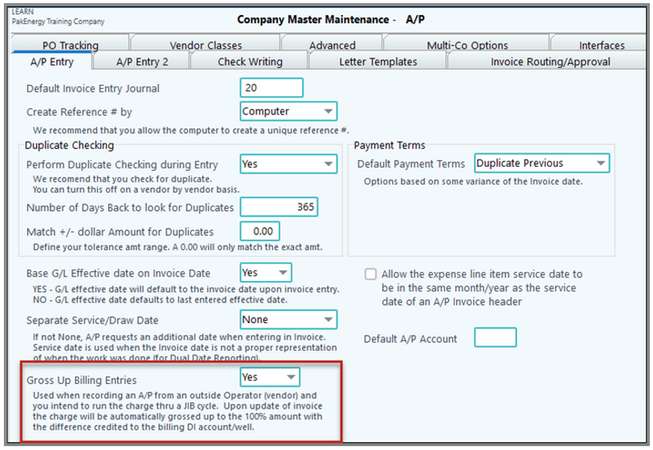
3.The Billing Deleted Interest Account should already have been setup in Revenue/Billing > Company Maintenance.
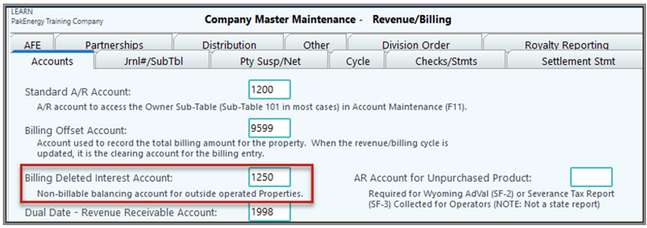
4. An example of a property set up with Deleted Interest Billing

Use:
When entering the invoice into Accounts Payable, enter only the amount billed to you.
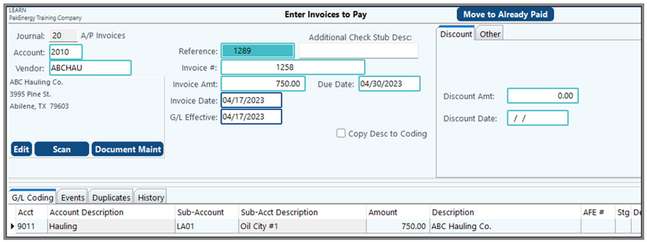
After you update, the system will create entries to gross up the JIB amount to 100% numbers. The Deleted Interest Account (1250) will be Credited, and after the Billing Cycle is updated, the 1250 Account should clear to zero.

The calculation involves taking the 750.00 billed and dividing it by the billing interest to determine the 100% number for the whole well/property.
($750.00/0.09375 = $8,000)
Notice in the screen shot above that the 9011 account now shows $8,000. The A/P side of our entry still shows only the $750.00 owed to the vendor. Pak Accounting books the difference to the 1250- billing deleted interest asset account.
During the billing cycle, the extract report shows the 100% billing amount:
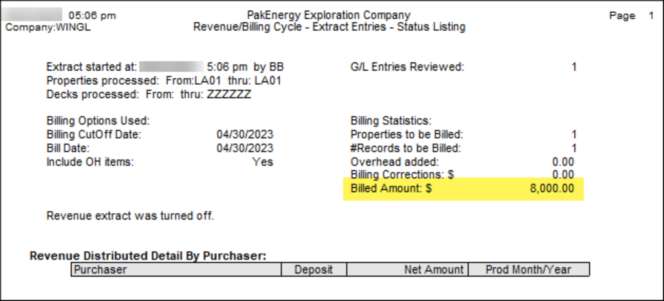
The Pre-Check Office Copy report shows the 100% billing amount, and the amount billed to each working interest owner. Notice the billing amount for the three working interest owners totals the $750.00 billed by the vendor and the difference of $7,250 billed to the 1250 account.
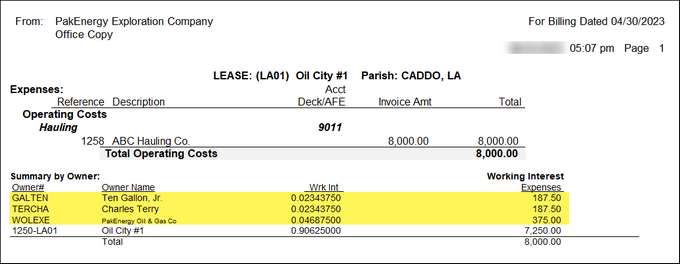
The owners see the 100% amount for the whole property as well as their specific portion of that expense.

Once the billing cycle is updated it will also post an entry into the General Ledger. This cycle entry will include an entry into the 1250 account which will bring the 1250 account to zero. (See screenshot below).
